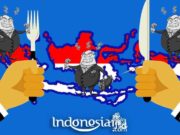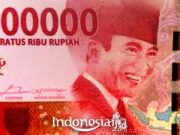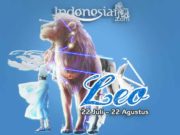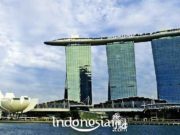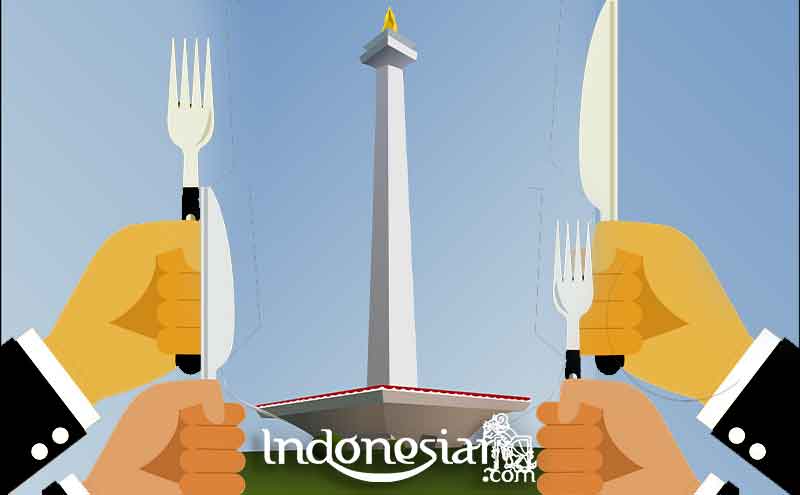Indonesia is a country located in Southeast Asia. This country has a state foundation, namely Pancasila. As the nation’s ideology, it is good for citizens to know Pancasila, the main function of Pancasila, the values of Pancasila, and the meaning of the symbol of Pancasila.
Indonesia has a state basis, namely Pancasila. The points are written in the preamble to the 1945 Constitution. In the last paragraph, the five precepts that form the basis of the Indonesian state are written, namely:
- God Almighty
- Just and civilized humanity
- Indonesian Unity
- Democracy led by wisdom in deliberation/representation
- Social justice for all Indonesian people
Written in Ronto’s 2012 book Pancasila As Ideology and Basic State, Pancasila is etymologically derived from Sanskrit, “Panca” which means five, and “Syla” which means joint stone. Pancasila is the formulation and life of the nation and state for all Indonesian people.
As the basis of the state, Pancasila certainly has a function. Basically Pancasila serves as the basis of all applicable laws in Indonesia.
In his book, Ronto formulates the main function of Pancasila in 9 points, including:
- Pancasila as the state ideology
- Pancasila as the basis of the state
- Pancasila as the soul of the Indonesian nation
- Pancasila as the personality of the Indonesian nation
- Pancasila as the way of life of the Indonesian nation
- Pancasila as the source of all sources of law or a source of law order for the Republic of Indonesia
- Pancasila as the noble agreement of the Indonesian nation
- Pancasila as the ideals and goals of the Indonesian nation
- Pancasila as a philosophy of life that unites the nation
The five principles in Pancasila should be interpreted more clearly, therefore the Pancasila Ideology Development Agency or BPIP summarizes the values of Pancasila as a way of life, as follows:
1. God Almighty
This first precept means that Indonesian citizens believe in and fear God, and are adjusted to the religion and belief of each person.
2. Just and civilized humanity
Citizens are asked to understand that every human being has the same degree, take care of each other, and work together for the peace of the country.
3. Indonesian Unity
Citizens must place the unity, unity, and interests of the state from their respective interests.
4. Democracy led by wisdom in deliberation/representation
Citizens cannot impose their will on others and must prioritize the interests of others. Differences in point of view must be resolved through deliberation.
5. Social justice for all Indonesian people
Citizens develop noble deeds by way of kinship, mutual cooperation, and being fair. Citizens must balance the rights and obligations of themselves, and of others.
Pancasila ideology
Pancasila is often referred to as the state ideology. To interpret it, Ronto in the book Pancasila as an Ideology and State Basis (2012) describes as follows:
Pancasila is the ideal that forms the basis, views and understanding of the state.
Pancasila as the state ideology is the common goal of the Indonesian nation which is implemented in national development, namely to create a just and prosperous society that is materially and spiritually evenly distributed.
Pancasila is a forum for the Unitary State of the Republic of Indonesia which is independent, sovereign, united, and sovereign of the people in a safe, serene, orderly and dynamic atmosphere of the nation as well as in a world that is free, friendly, orderly and peaceful.
Indonesia has a national symbol in the form of an eagle, or often referred to as the Garuda Pancasila. On the bird’s chest there is a shield depicting 5 symbols that represent the precepts in Pancasila, which means as follows:
The star symbolizes the first precept, namely Belief in the One Supreme God. Written on the website of the Ministry of Education and Culture, the star represents a spiritual light for all citizens. The five sides of the star represent the beliefs of each citizen.
The chain symbolizes the second precept, namely just and civilized humanity. The chain consisting of 17 bracelets depicts human relationships that help each other.
The banyan tree symbolizes the third precept, namely Indonesian unity. The banyan tree is described as a shelter for all citizens. The symbol also signifies the unity of Indonesia which is firmly rooted in strong roots.
The head of the bull symbolizes the fourth precept, namely society led by wisdom in deliberation / representation. The head of a bull is defined as an animal that likes to gather and is compact in making decisions.
Rice and cotton symbolize the fifth principle, namely social justice for all Indonesian people. Rice and cotton are interpreted as the needs of the Indonesian people, regardless of status and position. Rice and cotton reflect clothing and food, there is no gap between citizens
That is the simple definition of Pancasila, which is firmly held as the basis and identity of the Indonesian nation. It is good for citizens to understand the meaning of Pancasila, the main function of Pancasila, the values of Pancasila, and the meaning of the symbol of Pancasila. Hopefully this article can make you understand about the insight of the Indonesian people. Come on, get more interesting information from indonesiar.com.








